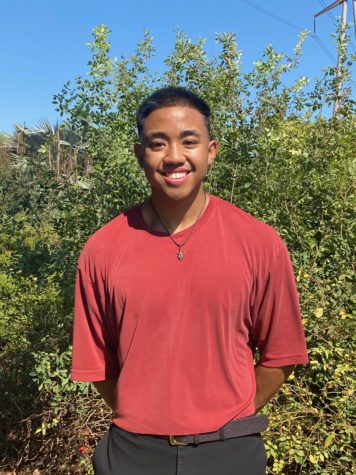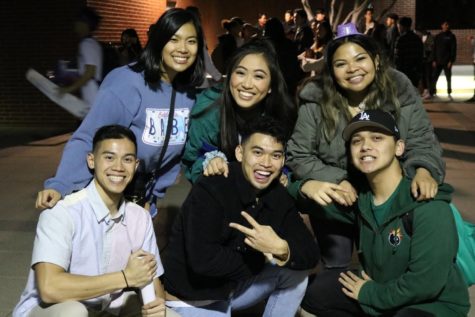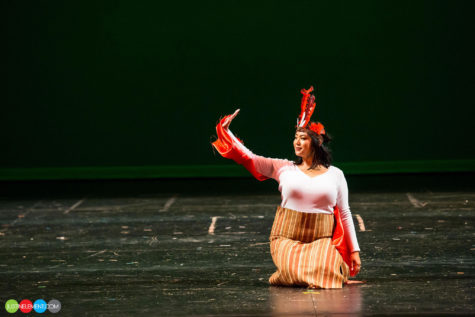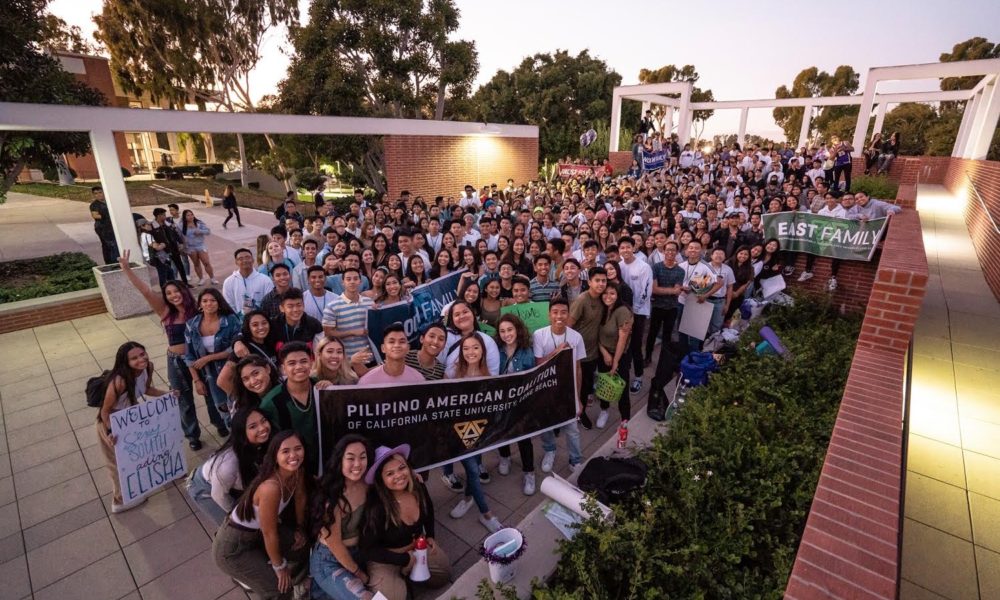The Pilipino American Coalition at Long Beach State is composed of students that identify as Pilipino to individuals interested in the Pilipino culture.
Established in 1972, it is a place where students can engage in philanthropy, form friendships and learn about the culture.
And according to its members, it is a family.
Like any family, members come together for support and connection that goes beyond cultural conversations.

When Jordan Rey, a fifth-year kinesiology major first joined PAC he saw his peers entering spaces he had not seen before nor what was presented in the media. He was introduced to the club during their Pilipino Cultural Night, a student-run event featuring cultural performances,
He saw Pilipinos engaging with art, being creative and being in positions of leadership.
It was characteristics he saw in himself during high school, but due to the binds of parental approval, did not pursue.
“[PAC] really opened my eyes to the potential that our culture [has], like just how colorful our culture is and how vibrant our dances can be in the ways we express ourselves,” Rey said.
“I was really inspired by that, even to finally at least give myself the chance to think about what being Pilipino means to me.”
Before PAC, Rey explained that food and Manny Pacquiao, professional boxer and now a senator in the Philippines, felt like the only things he shared with Pilipinos.
But food also distinguished him from his non-Pilipino peers.
He recalled how growing up, he would have to explain the lunches he ate to schoolmates whose “regular” lunches did not look like his. Rey said it embarrassed him to eat in front of them.
But through this community of students, whose experiences all varied, Rey found confidence and peers to look up to. He said that his culture has encouraged him to be more expressive.
“And I think, finally being able to solve that [lack of confidence] and finally feel proud of my culture through other people who feel pride in it has kind of had a trickle down effect into the other areas of my life where I felt less confident,” Rey said.
Something that Rey felt exemplified his growth is that he is now the coordinator of PCN.

For Melanie Payumo, a fifth-year psychology major, she said that by learning about her culture, she was able to learn about what her culture and ancestors were like before colonization.
“One thing I walked away from learning about my culture and who I am as a person is that down to the nub of it, Pilipino female leaders specifically have always inspired me,” Payumo said.
Spanish colonization of the Philippines began in the 16th century due to eastern expansion, the territory and surrounding islands named Las Islas Filipinas for King Phillip II of Spain.
The indigenous peoples then suffered centuries of rule, which changed hands in 1898 when the United States defeated Spain in the Spanish-American War.
American presence in the Philippines led to changes in a culture already hegemonized by Spain, and it was not until 1946 that the country was granted independence.
The influences of colonization persist today, such as colorism and loss of language.
Payumo explained that Pilipinos would always experience some level of assimilation, a natural result of the fact that they are living in a country so far from their home.
“I don’t think [assimilation is] a bad thing for anyone, but it can also be hindering to our connection with the actual culture going on in the Philippines,” Payumo said.

It’s what Shania Sevandra, a fourth-year political science major, experienced.
She was born in the Philippines and moved to the U.S. when she was four.
“Because I grew up with my grandparents and my parents speaking Tagalog at home, I was able to retain my native language,” Sevandra said. “I think that for me, it’s a very big deal.”
Sevandra said that while she was in PAC, she noticed that a lot of her peers who grew up in the U.S. lost hold of the language.
Growing up, Sevandra said that there was a mindset that in order to fit in with everyone else, she had to learn English. Without other Pilipinos to befriend, Sevandra found herself mimicking her peers’ cultures and was only taught about American customs in school.
“You don’t realize until you’re old enough where you’re like, that’s actually not correct,” Sevandra said. “We should be embracing our culture and learning more about it.”
Part of being Pilipino, to Sevandra, means family.
She grew up seeing multiple generations living in one household and was taught that family was always there for her if needed.
Like Sevandra, Payumo grew up understanding the importance of family, but also knew that she needed her mother to understand her.
Payumo said that she was the loud child, the loud teenager and the person who would say something out of line. Compared to her cousins, Payumo said that she was the only one to talk back to her parents.
But years of being disciplined for that did not take away Payumo’s certainty that her voice, her loudness, was an asset. She spoke with her mom to show her that she was going to thrive because of it.
When Payumo joined PAC at 18, she gained a social life, opportunities to learn like serving as historian and president and the ability to serve the Pilipino community.

It was the same for Allison Edquid, a fifth-year recreation therapy major, who learned that she had more opportunities to connect with her culture through PAC.
In her second-year, she was a cultural chair, creating cultural lessons for their weekly meetings and filmed segments on YouTube called “Lola’s Kitchen,” the word lola meaning grandmother in Tagalog, where she would take her grandmother’s recipes and cook them.
Edquid said that she always felt in touch with her culture growing up, dancing and participating in PCN since the seventh grade. She took classes in high school to learn Tagalog and now understands the language.
“Being Pilipino to me is definitely a part of my identity,” Edquid said.
When Edquid joined PAC, she realized that not everyone had the same connections to their culture that she had. It was something Edquid felt lucky about.
Edquid sees resilience throughout the Pilipino culture and said that she was always taught to bounce back.
“I definitely know that I hold my head higher now than I did before, being a Pilipino American woman,” Edquid said.




